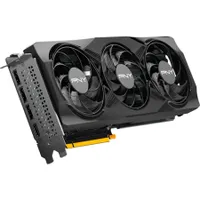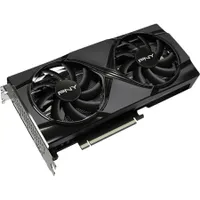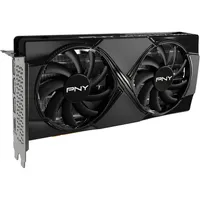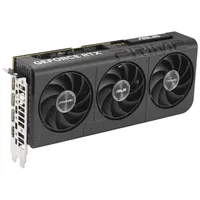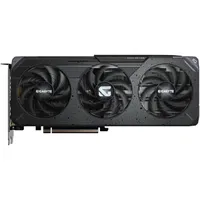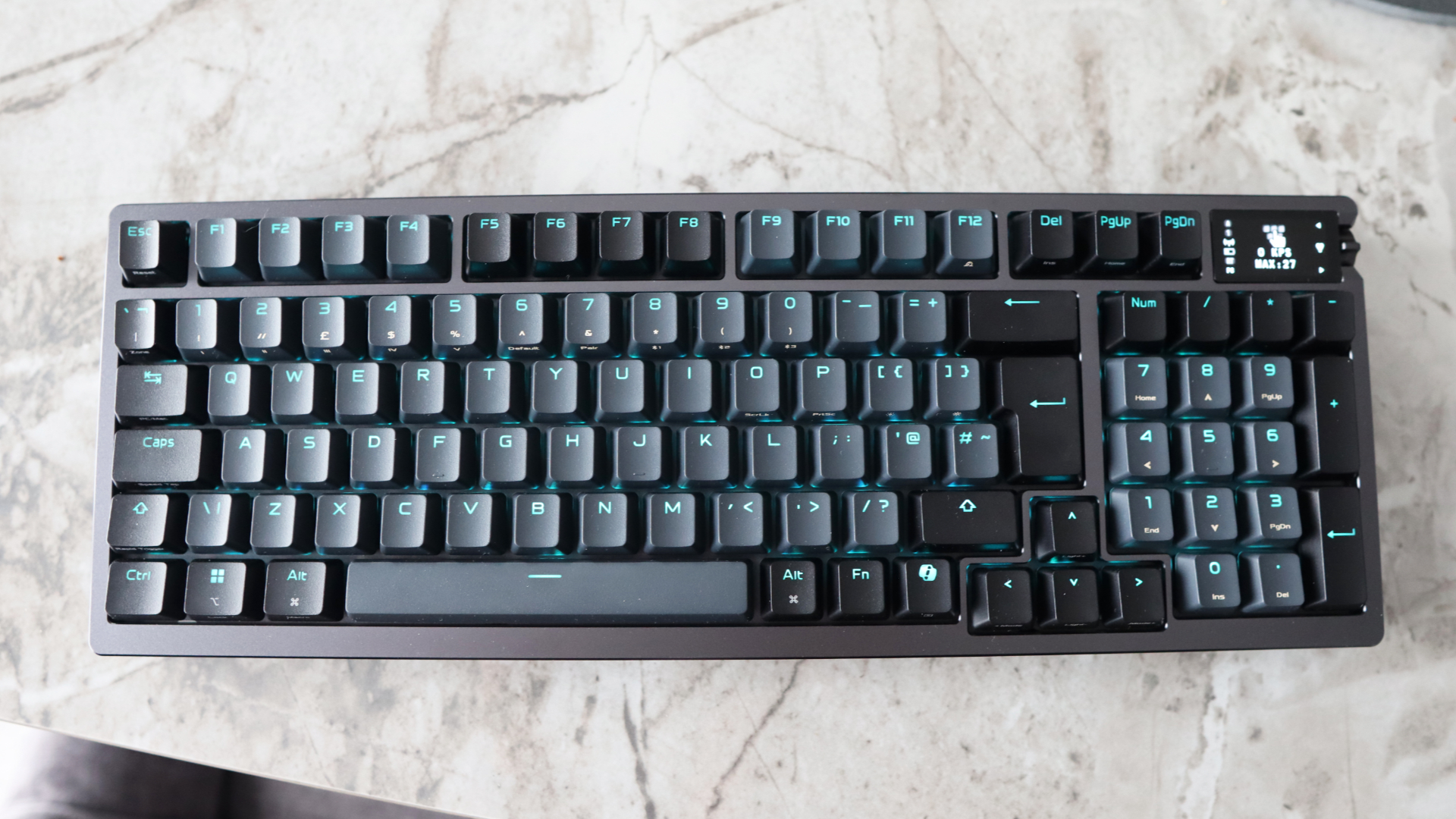I spend hours every week tracking GPU prices and I've finally found a bunch of Prime Day graphics card deals at or below MSRP. And they're not just the 8 GB models, either
There's a 16 GB and a 12 GB option in there, too.
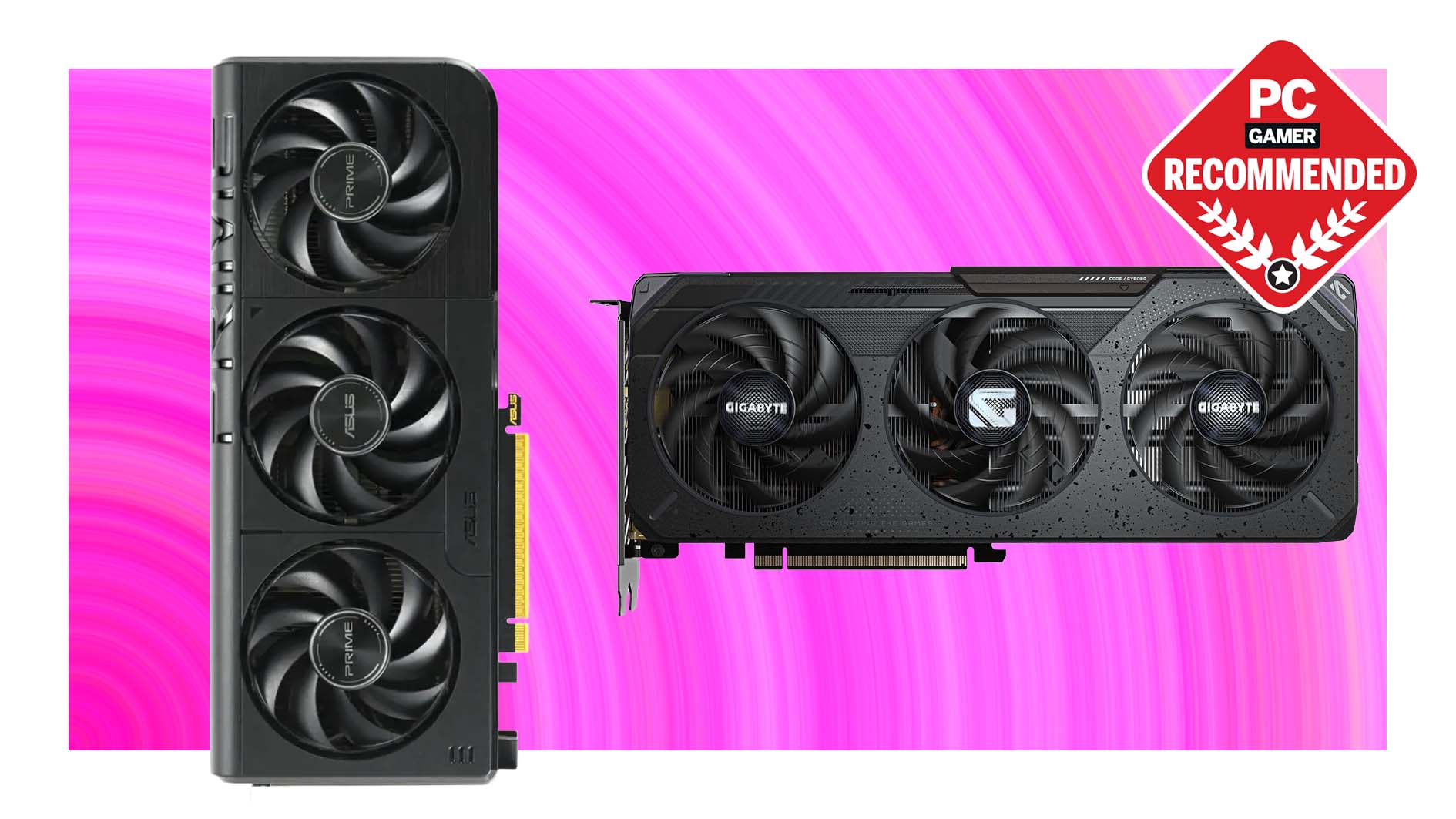
Nobody likes paying more than they should for any PC component, but it feels like we've all been ripped off when it comes to the latest GPUs. That's because so few of them have been sold at the MSRPs set by AMD, Intel, and Nvidia.
👉Shop all the early Prime Day deals on Amazon👈
However, after going through all the major online retailers and checking out every current generation of Arc, GeForce, and Radeon graphics cards, I've found five that are available at or under the suggested retail price.
You might not want to buy any of them, of course, but if you're on the hunt for a new GPU and you don't want to fork out any more cash than you have to, then scroll through your options below.
Quick links
- GeForce RTX 5070 | $550 @ Best Buy
- GeForce RTX 5060 Ti 16 GB | $430 @ Best Buy
- GeForce RTX 5060 Ti 8 GB | $350 @ Best Buy
- GeForce RTX 5060 | $300 @ Best Buy
- Radeon RX 9060 XT 8 GB | $280 @ B&H Photo
GeForce RTX 5070 (MSRP = $549)
Read moreRead less▼
PNY RTX 5070 | 12 GB GDDR7 | 6144 shaders | 2510 MHz boost | $549.99 at Best Buy
Although the RTX 5070 is a good deal faster than its predecessor, the RTX 4070, it's not a great deal at this price. However, this is as cheap as 5070s get right now. Only consider it if you really must have DLSS 4 and all of Nvidia's AI rendering tech.
RTX 5070 price check: Newegg $599.99 | Amazon $599.99 | B&H Photo $599.99 | Walmart $619.99
Technically, this is 99 cents over the MSRP, but if you're handing over the better part of $550, what difference does another dollar make? Viewed in isolation, the GeForce RTX 5070 is a good graphics card and a sizeable step up from the previous generation RTX 4070.
Compared to the RTX 4070 Super, though, it's somewhat disappointing, which is why you should absolutely not be paying $600 for one. The RTX 5070's saving grace, like almost all the RTX 50-series models, is DLSS 4—Nvidia's AI-powered package of upscaling, multi-frame generation, and ray tracing denoiser technologies.
It's all extremely good and supported in many of the latest and greatest games. If you have a last-gen GPU, it's not so good that it's worth upgrading to, but if you're using an RTX 30-series or older card, then you'll definitely appreciate the jump in AI tech.
GeForce RTX 5060 Ti (MSRP = $429 16 GB, $379 8GB )
Read moreRead less▼
PNY RTX 5060 Ti | 16 GB GDDR7 | 4608 shaders | 2690 MHz boost | $429.99 at Best Buy
While the specs suggest it should only be a little faster than the 4060 Ti, the use of super-speedy GDDR7 gives the little Blackwell GPU a healthy boost. It's not worth buying if you already have an RTX 40-series card, but it's a decent upgrade if you have an older GPU.
RTX 5060 Ti price check: Walmart $429.99 | Amazon $449.99 | B&H Photo $449.99 | Newegg $479.99
Yes, I know it's not exactly at MSRP, but this is another GeForce RTX 50-series model that's been frequently sold at well over Nvidia's asking price. Unlike the 5070, the RTX 5060 Ti is a decent improvement over the RTX 4060 Ti, even though it uses a little more power.
I've already mentioned DLSS 4 so I won't reiterate its benefits again. Instead I'll focus on the point that there, of course, two versions of the RTX 5060 Ti: one with 16 GB of VRAM and another with 8 GB.
Read moreRead less▼
PNY RTX 5060 Ti | 8 GB GDDR7 | 4608 shaders | 2690 MHz boost | $379.99 $349.99 at Best Buy (save $40)
The 8 GB version of the new RTX 5060 Ti should really be cheaper than this, but this is the MSRP that Nvidia has set. You're better off saving a bit more money and waiting for an affordable 16 GB model, though. It won't be any faster, but the extra VRAM is worth having when games start to demand more memory.
RTX 5060 Ti 8 GB price check: Newegg $379.99 | Amazon $379.99 | B&H Photo $379.99 | Walmart $429.99
The 16 GB version is at its MSRP (+99 cents, natch), but this 8 GB model is $30 under, so you should buy that one, yes? The two variants have identical core counts and clock speeds, so they'll run games at exactly the same speed.
However, in situations where more than 8 GB of VRAM is being demanded by the game's engine, the 16 GB will carry on just fine. Is that worth $80? Only you can really answer that question, but while VRAM limits aren't widespread in games at the moment, over the coming years, it probably will be.
That said, you can always turn down the graphics settings to stay within an 8 GB VRAM limit, so if you're counting the pennies, then go with the cheaper version. Especially since that's a genuine deal.
GeForce RTX 5060 (MSRP = $299)
Read moreRead less▼
Asus RTX 5060 | 8 GB GDDR7 | 3840 shaders | 2527 MHz boost | $329.99 $299.99 at Best Buy (save $30)
The RTX 5060 isn't massively faster than its predecessor, the RTX 4060, but having full support for DLSS 4 is a big plus. Stocks are decent, so you should have no problem picking one up at the MSRP, but you're better off saving more money and buying an RTX 5060 Ti.
RTX 5060 price check: Newegg $299.99 | B&H Photo $299.99 | Amazon $299.99 | Walmart $329.99
Step down to the standard RTX 5060 model and once again, you're looking at an MSRP price tag. This Asus model looks like a big ol' beast of a graphics card, but underneath that massive cooler is a tiny GPU that isn't overly impressive.
DLSS 4 saves the day in games that support it, of course, and as you can see above, the RTX 5060 Ti is faster by a reasonable margin. And the 8 GB version of that particular GPU is only $50 more expensive.
So while the RTX 5060 looks okay on paper and the 'under' $300 price tag might be tempting, spending a bit more money will bag you a much better graphics card. If you really want to save your cash, then go Team Red.
Radeon RX 9060 XT 8GB (MSRP = $299)
Read moreRead less▼
Gigabyte RX 9060 XT | 8 GB GDDR6 | 2048 shaders | 3320 MHz boost | $309.99 $279.99 at B&H Photo (save $30)
Nvidia's RTX 5060 has superior upscaling and frame generation technologies, but AMD's little RX 9060 XT has it beat on raw GPU power. You're better off saving more money and buying a 16 GB version, though.
RX 9060 XT 8 GB price check: Newegg $299.99 | Amazon $299.99 | Best Buy $299.99
Cheaper and better than the RTX 5060, AMD's 8 GB version of the Radeon RX 9060 XT is easily the best value graphics card you can buy at the moment. Sure, FSR upscaling and frame generation isn't as good as Nvidia's DLSS, but the little RDNA 4-powered GPU inside the Radeon is pokier than the GeForce GPU.
If every graphics card was sold at its MSRP, I'd choose the 16 GB version of the RX 9060 XT instead of this one, but $20 is a pretty reasonable discount for what's already a well-priced card. Avoid all the usual 8 GB limits in your games, and you'll have yourself a cracking little GPU.
👉Check out all Best Buy's GPU deals right here👈
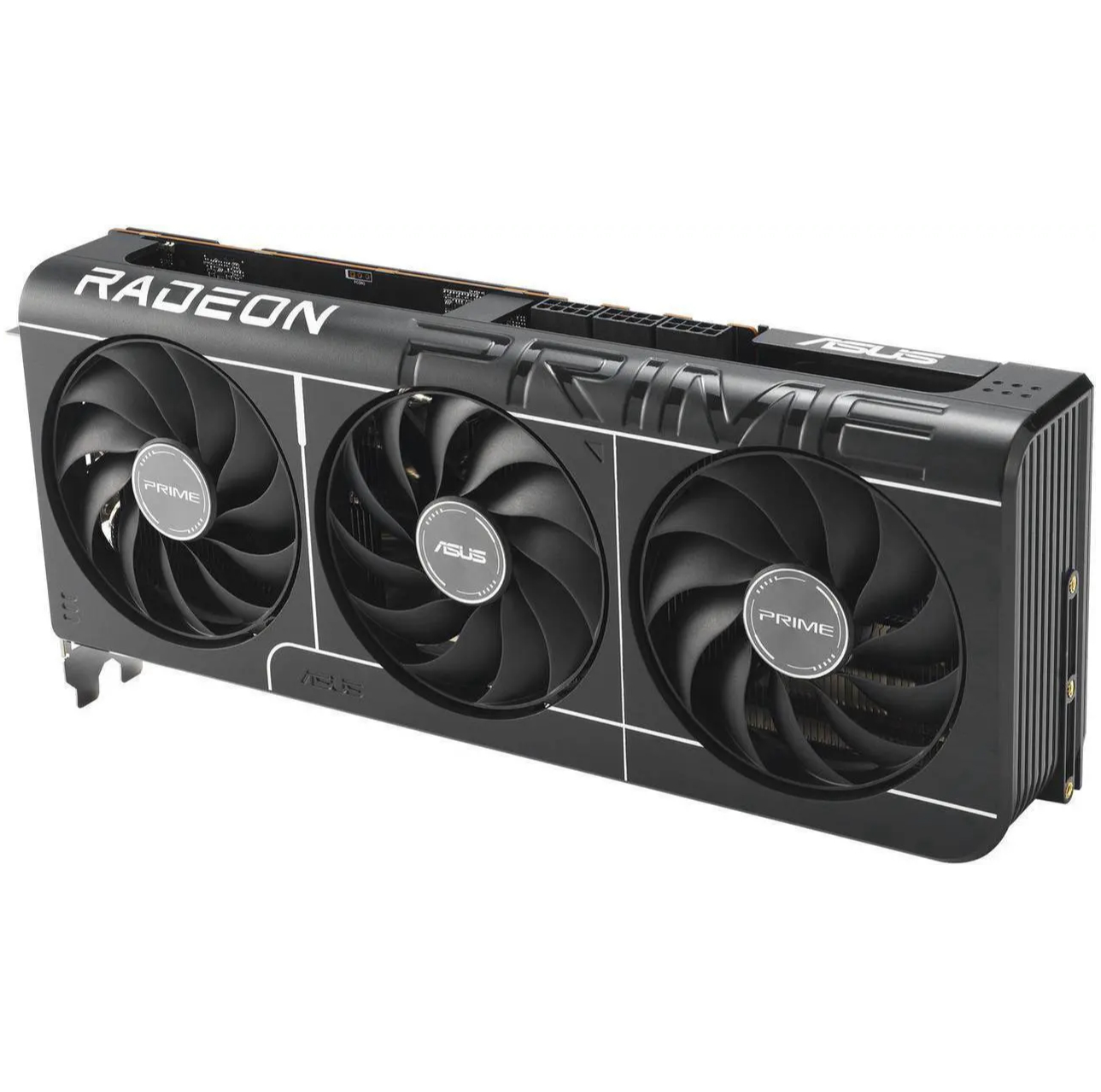
1. Best overall: AMD Radeon RX 9070
2. Best value: AMD Radeon RX 9060 XT 16 GB
3. Best budget: Intel Arc B570
4. Best mid-range: Nvidia GeForce RTX 5070 Ti
5. Best high-end: Nvidia GeForce RTX 5090
Keep up to date with the most important stories and the best deals, as picked by the PC Gamer team.

Nick, gaming, and computers all first met in the early 1980s. After leaving university, he became a physics and IT teacher and started writing about tech in the late 1990s. That resulted in him working with MadOnion to write the help files for 3DMark and PCMark. After a short stint working at Beyond3D.com, Nick joined Futuremark (MadOnion rebranded) full-time, as editor-in-chief for its PC gaming section, YouGamers. After the site shutdown, he became an engineering and computing lecturer for many years, but missed the writing bug. Cue four years at TechSpot.com covering everything and anything to do with tech and PCs. He freely admits to being far too obsessed with GPUs and open-world grindy RPGs, but who isn't these days?
You must confirm your public display name before commenting
Please logout and then login again, you will then be prompted to enter your display name.
